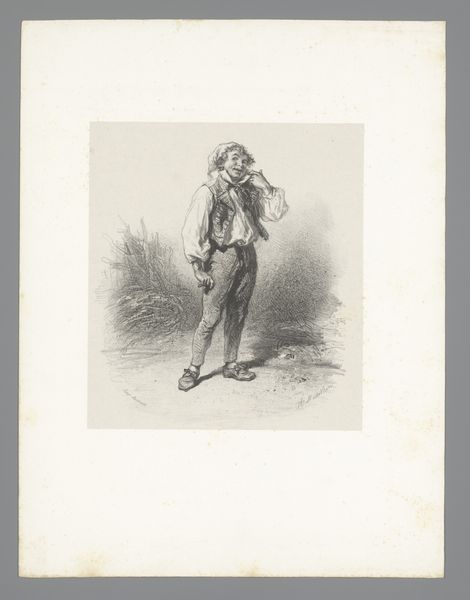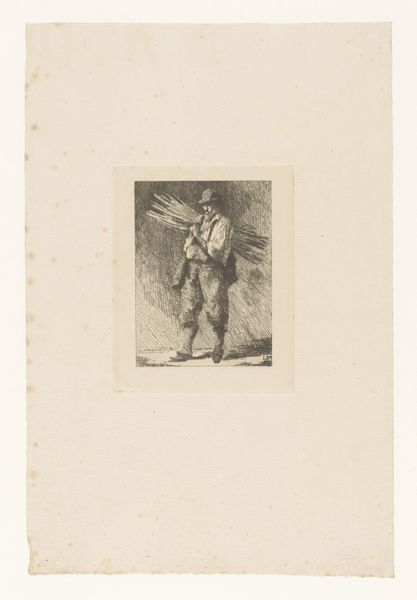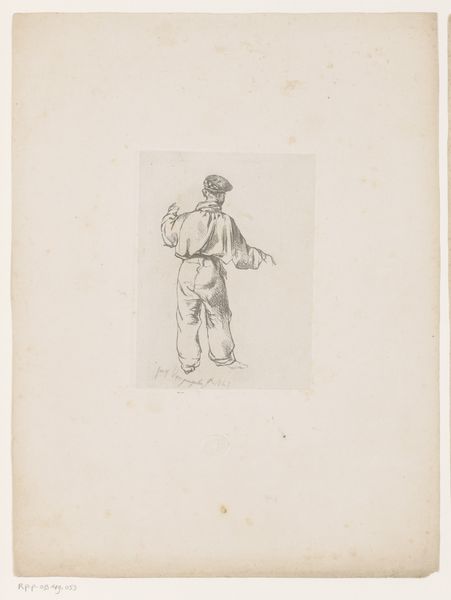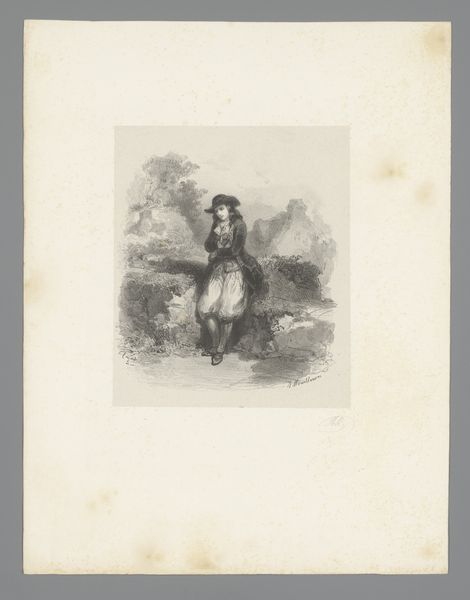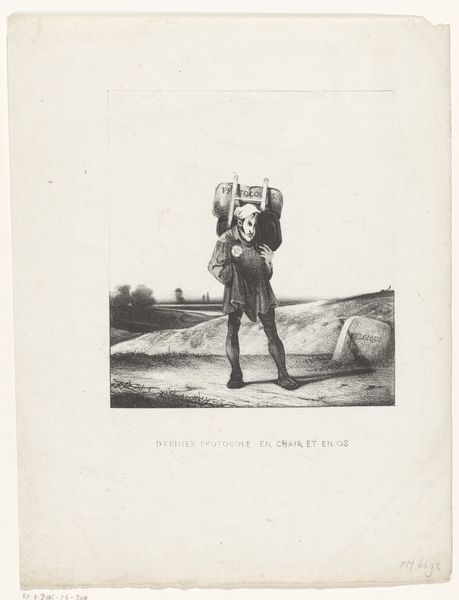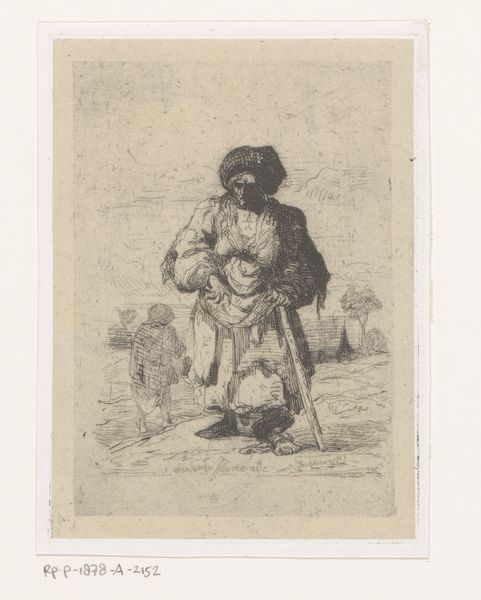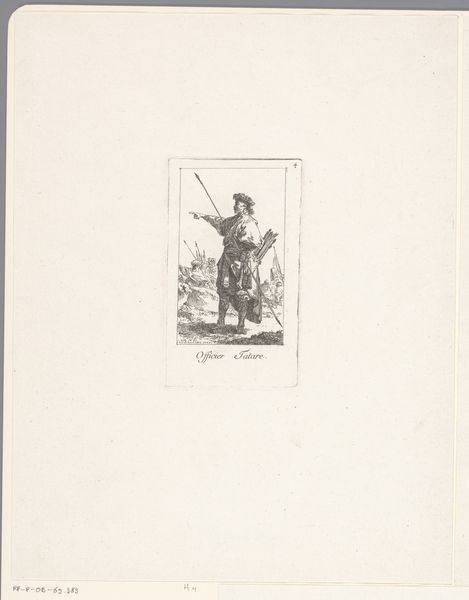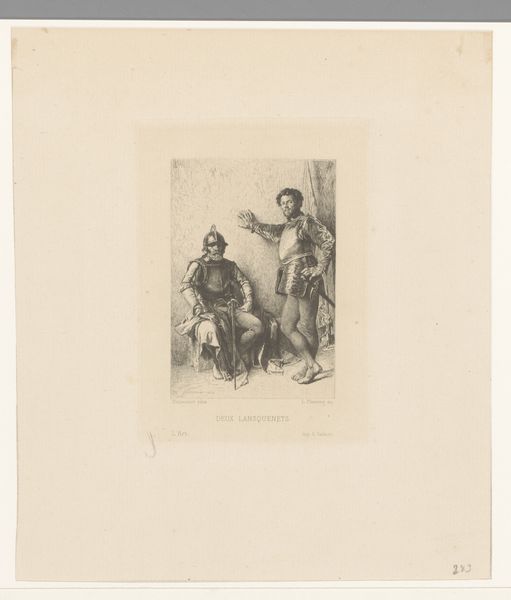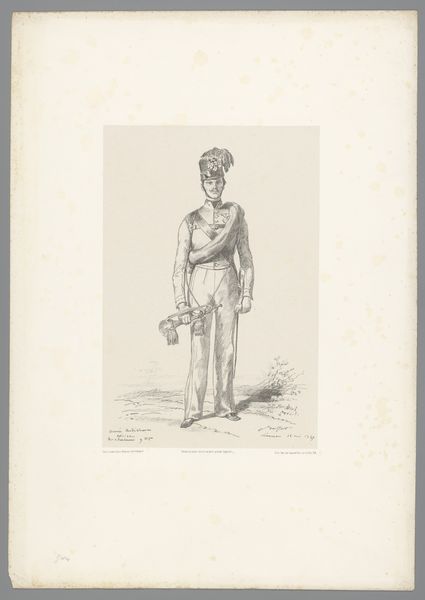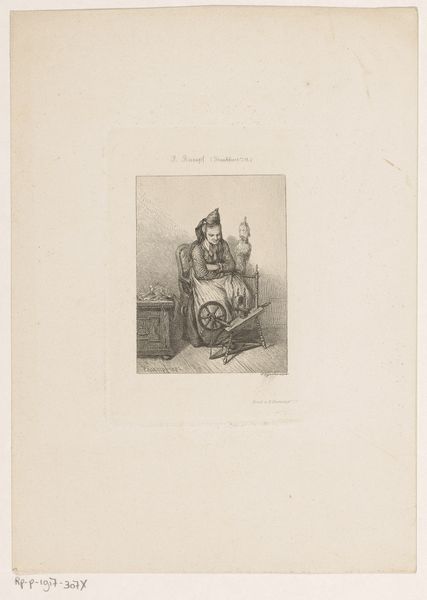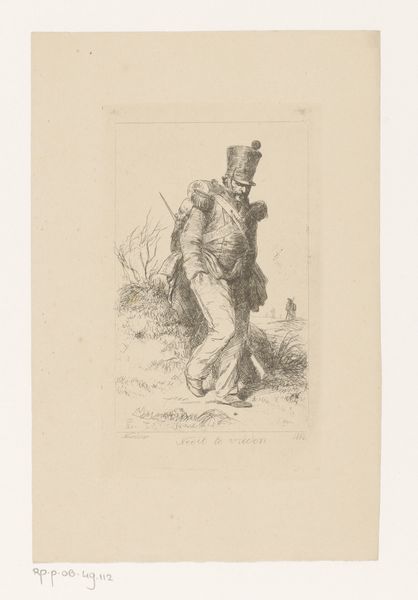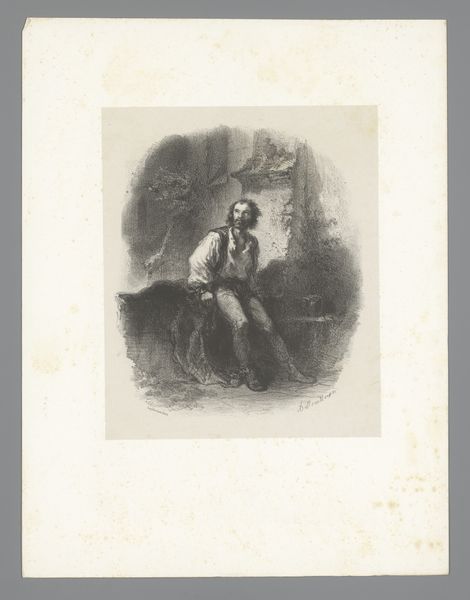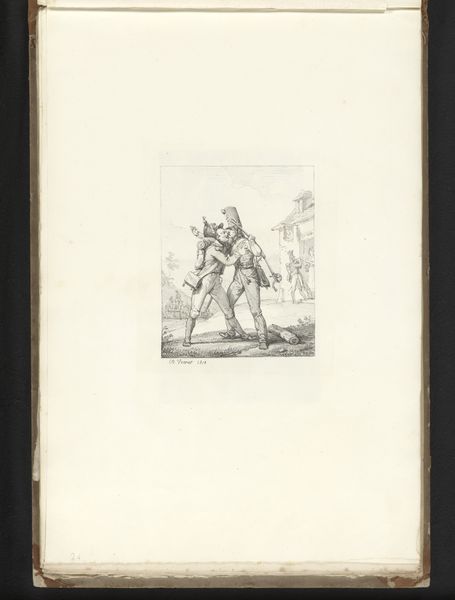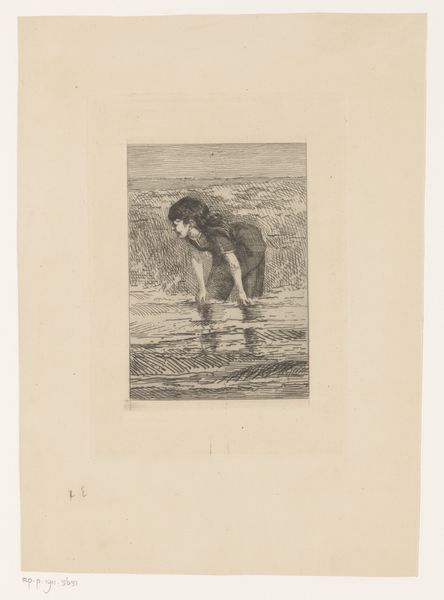
Wandelaar met rugzak en hoed in de hand in vlak landschap 1830 - 1880
0:00
0:00
adolphemouilleron
Rijksmuseum
Dimensions: height 356 mm, width 272 mm
Copyright: Rijks Museum: Open Domain
Adolphe Mouilleron created this print of a wanderer in a flat landscape in the 19th century. In this era, the concept of the “flâneur”— a detached, observant wanderer—emerged, particularly among privileged men. This figure embodies a specific kind of freedom, one deeply entangled with class and gender. The ability to wander without purpose was a privilege, afforded by leisure and economic stability. Consider how this contrasts with the forced migrations and constrained movements of marginalized people. The wanderer's identity is shaped by the very landscape he traverses, a landscape made possible by specific social conditions. He is caught between the desire for freedom and the recognition of its inherent limitations. This image is less about the romance of travel and more about the complex negotiations of identity, privilege, and place.
Comments
No comments
Be the first to comment and join the conversation on the ultimate creative platform.
